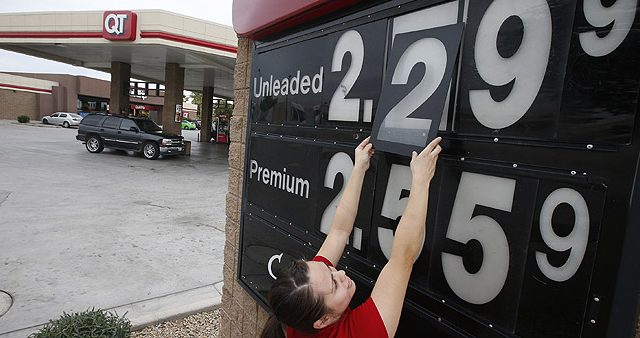Oil Price War Leaves Saudi Arabia With A Budget Deficit

Most Americans are no doubt enjoying the lower gas prices prompted by lower oil prices this holiday driving season (there’s nothing like a supply glut to silence the gas price conspiracy theorists). Meanwhile, here in North Dakota we’re watching the dropping prices nervously.
Republicans in the state don’t want to admit it because they’ve been in charge of spending in recent years, and they don’t want to be blamed for overextending the state budget. Democrats don’t want to admit it because their braying opposition to reforming the state’s arcane oil tax code is looking foolish these days as oil prices hover near a trigger which would cost the state billions in revenues. Yet, politics aside, there’s the potential for disaster in dropping oil prices.
But there is some good news (depending on our perspective) from Saudi Arabia where it seems their decision to deflate oil prices by flooding the market has created a bit of a budget deficit:
RIYADH, Saudi Arabia — Saudi Arabia’s Cabinet on Thursday endorsed a 2015 budget that projects a slight increase in spending and a significant drop in revenues due to sliding oil prices, resulting in a nearly $39 billion deficit.
In a sign of mounting financial pressure, the Finance Ministry said the government would try to cut back on salaries, wages and allowances, which “contribute to about 50 percent of total budgeted expenditures.” That could stir resentment among the kingdom’s youth, who make up a majority of the population and are increasingly struggling to find affordable housing and salaries that cover their cost of living.
The price of oil— the backbone of Saudi Arabia’s economy — has fallen by about a half since the summer. Saudi Arabia is extremely wealthy, but there are deep wealth disparities and youth unemployment is expected to mushroom absent a dramatic rise in private sector job creation. The International Monetary Fund says almost two-thirds of employed Saudis work for the government.
Here in America we can think wistfully of having only a $39 billion budget deficit (our annual budget deficit is measured in the hundreds of billions, and was over $1 trillion annually not so very long ago). Not to mention a budget where “salaries, wages and allowances” make up 50 percent of the budget. Here in America most federal spending goes to massive entitlement programs like Social Security and Medicare which are desperately in need of reform but politically intractable.
But back to the point at hand, this illustrates that Saudi Arabia’s capacity for depressing oil prices is limited. Eventually something has to give. The question is, how much damage will be done to North Dakota in the process?
Oil isn’t the only industry in North Dakota, but it’s the one mostly responsible for the state’s surge in prosperity in recent years. I’m not sure many rational citizens of this state would like to go back to the pre-oil boom days of a stagnant state economy supported by an aging, declining population.
On a related note, these market machinations by Saudi Arabia are exactly why we need to open up foreign markets to American crude oil companies. In a situation which gives refiners a captive market, U.S. oil producers aren’t allowed to export their unrefined crude oil.
If they could, that would not only make American oil development much more resilient to market fluctuations but would also undermine the influence OPEC on the international markets.




